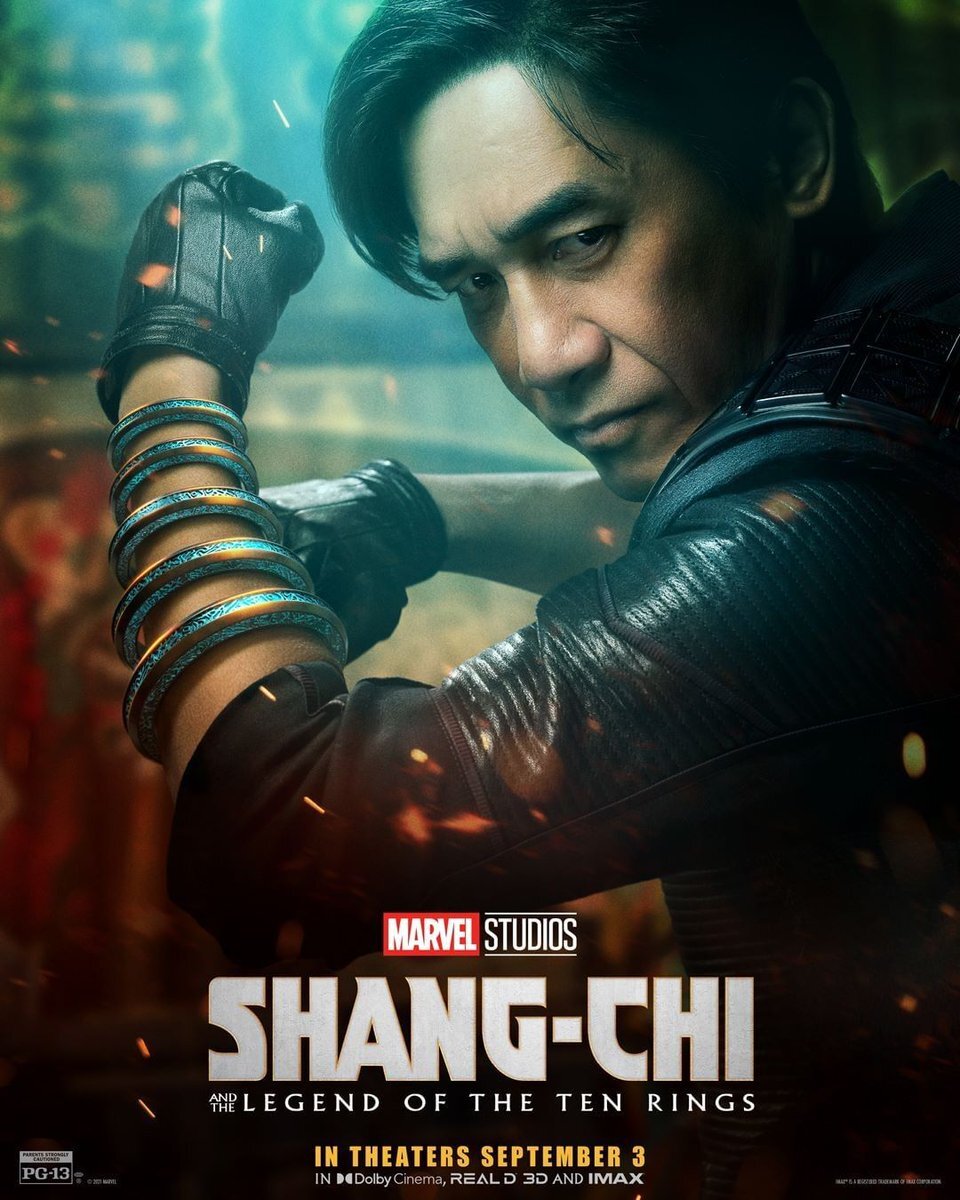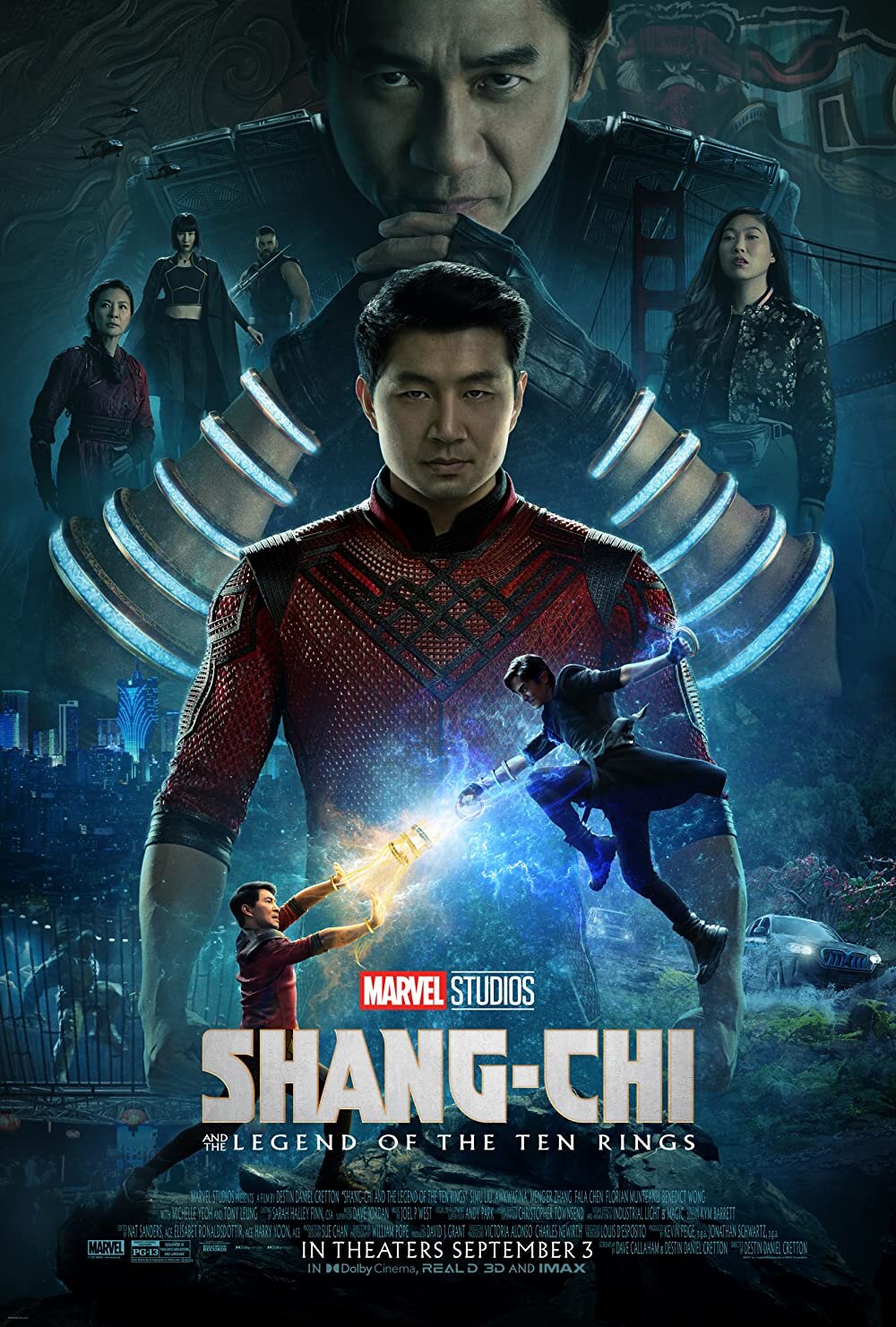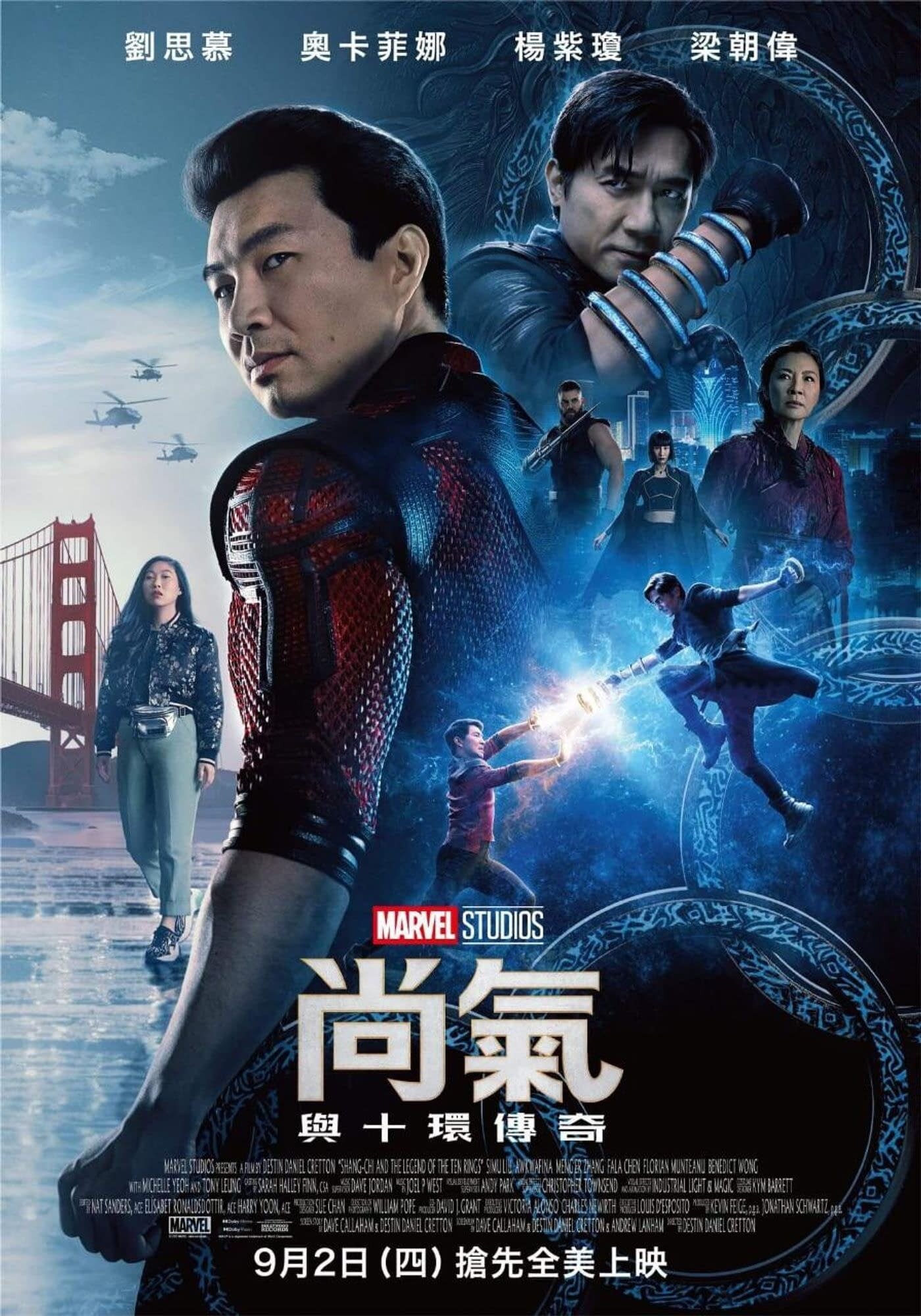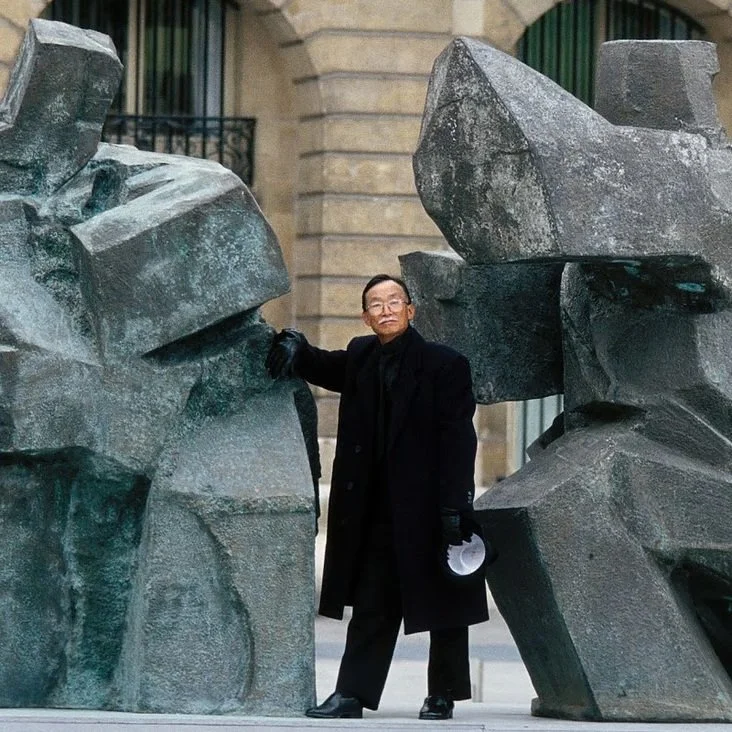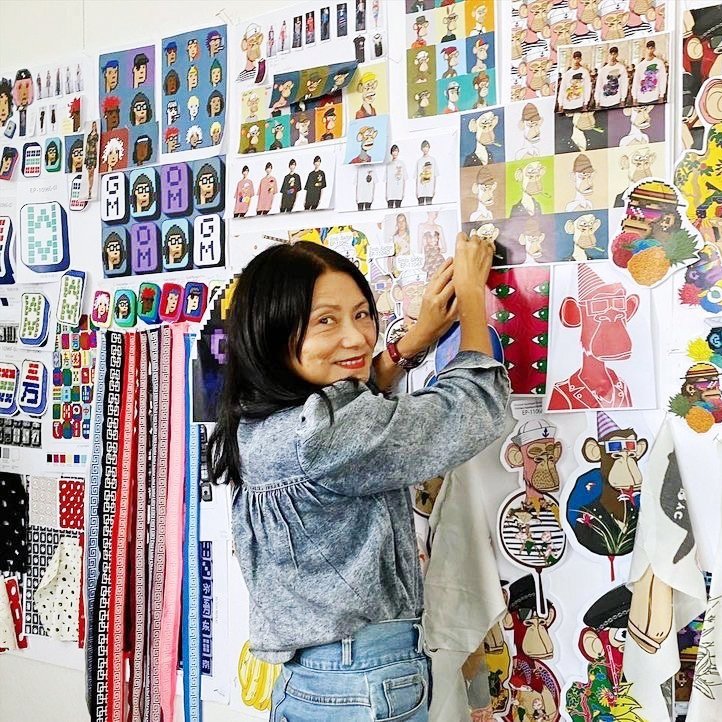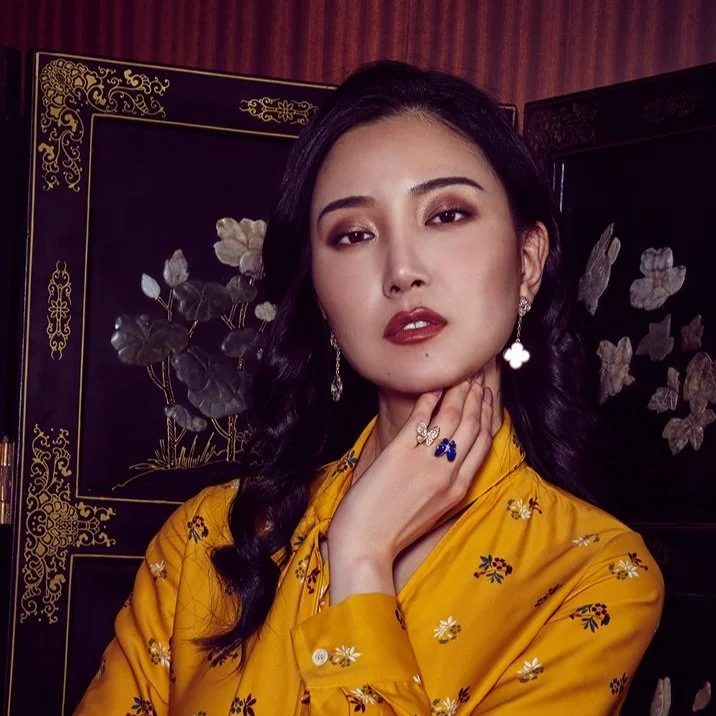Part 2 of Marvel's Shang-Chi: Tony Leung 梁朝偉 as Wenwu
Written by Deborah Lau-Yu
Images: Marvel Studios
Let us count the many reasons why many fans around the world are excited about Tony Leung 梁朝偉 being the co-star of Marvel’s《Shang-Chi and the Legend of the Ten Rings 尚氣與十環傳奇》. Tony Leung is already a legend, and needs no introduction to most Chinese people globally, especially those with a connection to Hong Kong. With his decades of award-winning performances in iconic movies in Hong Kong, he was known to many generations who have watched and admired him. From the perspective of non-Chinese-speaking audiences, he is just as well-known amongst hardcore film buffs and movie watchers globally, for whom subtitles are no obstacle for enjoying and critiquing foreign language productions.
Which of his performances is your personal favourite? Was it the beginning of his career that is most memorable as the host of a children's classic programme, 430 Space Shuttle 430穿梭機 (1982)? Or with his comical roles of Tales of a Eunuch 鹿鼎記 (1984), Police Cadet 新紮師兄 (1984) or Two Most Honorable Knights 絕代雙驕 (1988)? Or with his police role co-starred with Maggie Cheung 張曼玉 at Police Cadet 新紮師兄 (1984)?
Perhaps it’s one of his seven collaborations with Director Wong Kar-Wai 王家衛, including Chungking Express 重慶森林 (1994), Happy Together 春光乍洩 (1997) (where he co-starred with the dearly missed Leslie Cheung), In the Mood for Love 花樣年華 (2000) with Maggie Cheung (which he was awarded Best Actor at the Cannes Film Festival), and The Grandmaster 一代宗師 (2013) with Ziyi Zhang 章子怡. Were you riveted by his brave and challenging performance in Ang Lee 李安’s somewhat controversial Lust, Caution 色,戒 (2007) with Tong Wei 湯唯?
“Tony Leung’s appearance in this American production is a milestone in many ways, and one that is a poetic relief for many Asian-North Americans in a particularly challenging social pandemic of Anti-Asian Racism during the already pressing global pandemic.”
He appeared in two other Venice Film Festival Golden Lion-winning films too, including A City of Sadness 悲情城市 (1989) and Cyclo 三輪車伕 (1995). Or is it Hero that comes to mind, as well as Hard Boiled 辣手神探 (1992)?
For a generation of millennial audiences, the Infernal Affairs 無間道 (2002) was unforgettable. His resume is beyond most people’s imagination: he is a seven-time winner at the Hong Kong Film Awards and three-time winner at the Golden Horse Film Awards, both top honours in Asia. He is one of the most acclaimed actors in Asia, and yet has one of the most hard-working and humble attitudes known to his peers. His co-star, a newcomer by comparison, Simu Liu, describes in a recent interview how Tony Leung shook his hand with both of his hands, demonstrating the respect and humility that the veteran is known to bring on set.
Soon, the top spot of your favourites list might be overtaken by his ground-breaking performance as Wenwu (previously known as the Mandarin) in Marvel Cinematic Universe’s Shang Chi and the Legend of the Ten Rings. This is his first time in a North American-produced film in Hollywood, where his fans are filled with a frenzy of excitement about his first-time performance delivered fully in English. When the trailers were released, that fact alone of acting in a foreign language became a topic of interest — yet another achievement of a lifetime performer who defies challenges and stereotypes in a broad range of roles, character profiles, narratives and period styles.
Language aside, what he brings to the table is a steadfast foundation of experience and presence to the movie. Undoubtedly, the many young talents were enveloped by his acting and mentorship —like family, as they each posted online about their time together, filming in Australia through a period when the world was in lockdown! His leadership on set definitively help to carry the spirit and storyline, and he’s been acknowledged for helping to nourish the talent of his younger co-stars. Simu Liu and Fala Chen have each shared about it being a dream come true for them to work with such a giant of talent and wisdom that Tony Leung is.
THE SIGNIFICANCE OF TONY LEUNG IN A NORTH AMERICAN-PRODUCED FILM.
Tony Leung’s appearance in this American production is a milestone in many ways, and one that is a poetic relief for many Asian-North Americans in a particularly challenging social pandemic of Anti-Asian Racism during the already pressing global pandemic. The very fact that a familiar long-time actor from Asia is cast in a film in mainstream American pop culture is one of the needed things in the gap that many minorities experience daily. This big divide is normally a hopeless space between their everyday lives as multi-generational immigrant families in America, and their media consumption that often is imported from Asia. Simply put, you might not understand or relate to what’s around you, so you choose to enjoy something that others around you don’t understand, which naturally becomes a segregating factor.
Here lies an important nuance in representation that is different from the other big moments forged with Shang-Chi, such as Chinese-Canadians seeing Simu Liu, someone raised in Canada being represented on the big screen. Both are milestone moments, but they differ in the type of representation they serve.
sponsored by piaget.
This article will now switch gears to share from a personal perspective to illustrate the collective view that has surely been experienced by many of you reading today. Tony Leung’s role and Simu Liu’s role satisfy two very important needs that have been a perplexing problem in my life since I was a child. On one hand, I loved watching films and listening to Chinese language music from Hong Kong since I was a toddler. By three years old, I was imitating the theme songs of period dramas that my grandmother and mother would watch on channels that were the precursor to Fairchild TV today (and yes, one of them starred Tony Leung!). I thoroughly enjoyed and learned my Chinese (Cantonese) fluently through conversation and media consumption at home, and was content that I could communicate and have a close relationship with my grandparents. But it was always something “just for home.” It wasn’t something I could or would repeat in school with my friends, nor share with my teachers. It was almost like a secret or an alternate life. At school, it was the other side of me that I grew up loving — Polka Dot Door, Sharon, Louis and Braham, Mr. Dress-Up and more. As I matured, this evolved into Full House, the Power Rangers and Batman on YTV. Equally enjoyable, just like the Chinese media, but this media was clearly for enjoyment with school friends, not something understood or enjoyed by the family, and might I add — despite some members able to fluently speak and understand English. By the time I was enrolled in an extended French programme, it became increasingly complicated for a young teenager. Now we started to embrace yet another language and genre of culture! I recall sharing on a radio interview recently about this dilemma, and why such a long-ago experience from junior high school remains a reason in why I believed Fete Chinoise as a platform was so important…
In one of our core French classes, we were asked to list and describe our favourite singer and song. In a quest to be authentic, I first translated the ask in my head to English so I could think in my first language. I knew my favourite singer and song was by Leon Lai 黎明, a singer from Hong Kong. What happened next still feels disappointing years later — our pod of four students were discussing answers and I felt inadequate since they others didn’t know who I was talking about. I erased my answer, and opted for Celine Dion’s “Because You Loved Me” and Mariah Carey “Always Be My Baby.” Celine Dion was French-Canadian and everyone knew her album since it was just recently released, so I felt relieved to have the validation of understanding from my peers and French teacher.
I thought I was alone in this experience for decades. In high school, there were different groups of friends which added to the split personality of culture — a group of newly immigrated friends that mainly listened to the likes of Leon Lai, Andy Lau, Jacky Cheung and Aaron Kwok, and then a group of friends that worshipped ‘N Sync, Christina Aguilera and the Backstreet Boys. Everyone of course at school loved Boyz II Men. I suppose this experience brought some comfort that others consumed media from Asia too. But the gap, seemingly innocent, still brought a deafening divide in awkward conversations sometimes. For instance, when explaining what I did on the weekend, I would tune my answer to my audience — there was little space or wisdom for a teenager to think about issues of identity, culture and the nuances that occur in such a diverse social fabric in Toronto.
Picture of Wenwu / The Mandarin (Tony Leung Chiu-wai)
If you find yourself in my story, know that you are not alone! The journey of culture is complex, is wider and deeper, and more fascinating than we’ve been told and have told. It’s time to open our hearts and minds to the possibility that is ahead of us when we lean in on our culture and heritage.
This personal experience is just a glimpse of why there is a magnitude of impact from the casting choice of Tony Leung as Wenwu in Shang Chi. And for Chinese diasporas across Canada, it is particularly special that acting opposite Tony, as his son are not one, but two Canadians. Simu Liu who plays Shang-Chi as a grown man, is from Toronto, Ontario, and the star of the movie. The young gentleman who plays the young Shang-Chi is Canadian Jayden Zhang Tianyi, a 12-year-old from Vancouver, British Columbia. Both originally born in China, their parents immigrated to Canada over two decades ago. Zhang’s debut on the big-screens is truly huge, and for a child actor who enrolled in acting class at age 9, it must be one of the most incredible experiences you could earn so early on in his career, to be a part of a Marvel blockbuster production! It has only been two years since his talent was noticed by his manager at the Vancouver Young Actors School. Imagine the stories he will have to share with his peers and classmates, friends and family on the West Coast… at the age of merely one lunar zodiac cycle, he’s already had the opportunity of a lifetime: to act alongside the great Tony Leung.
As this Friday draws near for the public to be able to see the film in theatres, take a moment to appreciate the context around the film, especially when it comes to Tony Leung’s performance and approach to Shang-Chi. From his serious and professional attitude to studying the script and being on set to watch Director Destin Daniel Cretton at work, to his dedicated and gruelling training in the martial arts sequences, Tony brought a level to the movie that the cast and crew have described in awe. His level of hard work and respect for movie making, despite his status as one of the greatest actors of all time, reminds us of the art and craft behind every word delivered, every action performed.
Media around the world is abuzz with coverage hailing this Hollywood debut for someone they have known and loved for so long. A wave of Tony has swept the pages of Elle Men Singapore, GQ, South China Morning Post, and it’s only just started. We look forward to be enthralled in his performance when the movie is released this week. Reviews so far have been excellent, and even with expectations set high for every film he’s a part of, he never disappoints.
About the writer, Deborah Lau-Yu
Deborah Lau-Yu is the Editor-in-Chief of Fête Chinoise Magazine & Platform, and the Creative Director of PALETTERA Inc. She is passionate about visual culture and design, the arts, and the Chinese Canadian diaspora.
SPONSORED BY PIAGET.

